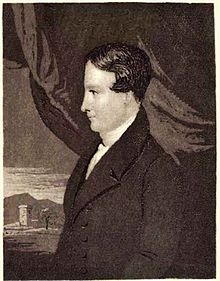⏱️ Estimated Reading Time: 5 min read
In part one of this series, we first looked at Robert Murray M’Cheyne’s life before God. Through his life, we saw the vital connection between our personal holiness and our gospel usefulness. God is after His people’s holiness. When we actively pursue a holy life, a life devoted to personal communion and enjoyment of God, then we will be useful in the public life. The whole aim, whether in private or in public, is to enjoy and glorify God.
In this article, we will now consider M’Cheyne’s walk with Christ as a pastor. Before seeing himself as a pastor, M’Cheyne saw himself as a needy sheep. The pastor, or whoever serves in formal ministry, must never forget that we are Christ’s sheep in His pasture. We need Christ too. Concerning this, M’Cheyne’s biographer, Andrew Bonar said that:
M’Cheyne fed others by what he himself was feeding upon. His teaching was in a manner the development of his soul’s experience. It was a giving out of the inward life. He loved to come up from the pastures wherein the Chief Shepherd had met him – to lead the flock entrusted to his care to the spots where he found nourishment.[1]
Thus, M’Cheyne’s preaching ministry was the outflow of his own personal devotion to the Christ. M’Cheyne’s “heart was filled, and his lips then spoke what he felt within his heart. He gave out not merely living water, but living water drawn at the springs that he had himself drank of.”[2] How did this pattern and pace of life impact M’Cheyne’s pastoral ministry? Let us briefly consider two ways.
First, the sum and substance of M’Cheyne’s ministry was centred on Jesus Christ whom he loved. He did not seem himself as one simply preaching doctrine, but one who is preaching the Christ of the doctrine. Bonar writes: “it was not doctrine alone that he preached; it was Christ, from whom all doctrine shoots forth as rays from a centre. He sought to hang every vessel and flagon upon him.”[3] In other words, Christ was the sole attraction of this gospel ministry. On July 8th, 1836, in his personal journal, M’Cheyne wrote the following: “I see a man cannot be a faithful minister, until he preaches Christ for Christ’s sake – until he gives up striving to attract people to himself, and seeks only to attract them to Christ. Lord, give me this!”[4] Similarly, in a letter to a friend, M’Cheyne wrote: “It is strange how sweet and precious it is to preach directly about Christ, compared with all other subject of preaching.”[5]
Second, M’Cheyne’s preaching was marked by earnestness love for his hearers. He did not preach in a cold, unfelt fashion. Instead, like the heart of His Saviour, he preached hard doctrines with tears in his eyes. He preached as one who felt the force of the doctrines that he preached, rather than simply articulating them. For example, on November 22, 1835, M’Cheyne preached a sermon on hell. Concerning the subject, M’Cheyne opened his address with the following words: “I desire to speak with all reverence and with all tenderness upon so dreadful a subject. The man who speaks of hell should do it with tears in his eyes.”[6]
Again, Bonar wrote: “His voice was remarkably clear, his manner attractive by its mild dignity. His form itself drew the eye. He spoke from the pulpit as one earnestly occupied with the souls before him. He made them feel sympathy with what he spoke, for his own eye and heart were on them.”[7] In Preaching and Preachers, concerning the ministry of M’Cheyne, Martyn Lloyd-Jones said the following:
You remember what was said of the saintly Robert Murray McCheyne of Scotland in the last century. It is said that when he appeared in the pulpit, even before he had uttered a single word, people would begin to weep silently. Why? Because of this very element of seriousness. The very sight of the man gave the impression that he had come from the presence of God and that he was to deliver a message from God to them. That is what had such an effect upon people even before he had opened his mouth. We forget this element at our peril, and at great cost to our listeners.[8]
To conclude, M’Cheyne’s holiness of life and fellowship with God fueled his public pastoral ministry. The public and known life of this servant was the outflow of his active, personal pursuit of God in the private. In many ways, as we serve Christ in our own generation, we must forget about ministerial success and fruitfulness. The need of the hour is for men to be solely, personally attracted and affected by personal communion with the risen Christ. He must be our joy and satisfaction daily. As our soul is ‘made happy in Jesus,” as George Mueller once put it, then we will have an impact on this world.
[1] Andrew, Bonar. Robert Murray M’Cheyne, 55.
[6] David P., Beaty. An All-Surpassing Fellowship, 27.
[7] Andrew, Bonar. Robert Murray M’Cheyne, 98.
[8] D. Martyn, Lloyd-Jones. Preaching and Preachers (Grand Rapids: Zondervan, 2011), 100.
Joshua J. Mills is married to his beloved Kyla and they have two children: Isaac and Lydia. Outside of the home, Joshua has the privilege of serving as pastor at Trinity Baptist Church (Burlington, Ontario) and as a guest lecturer through Carey International University of Theology.




